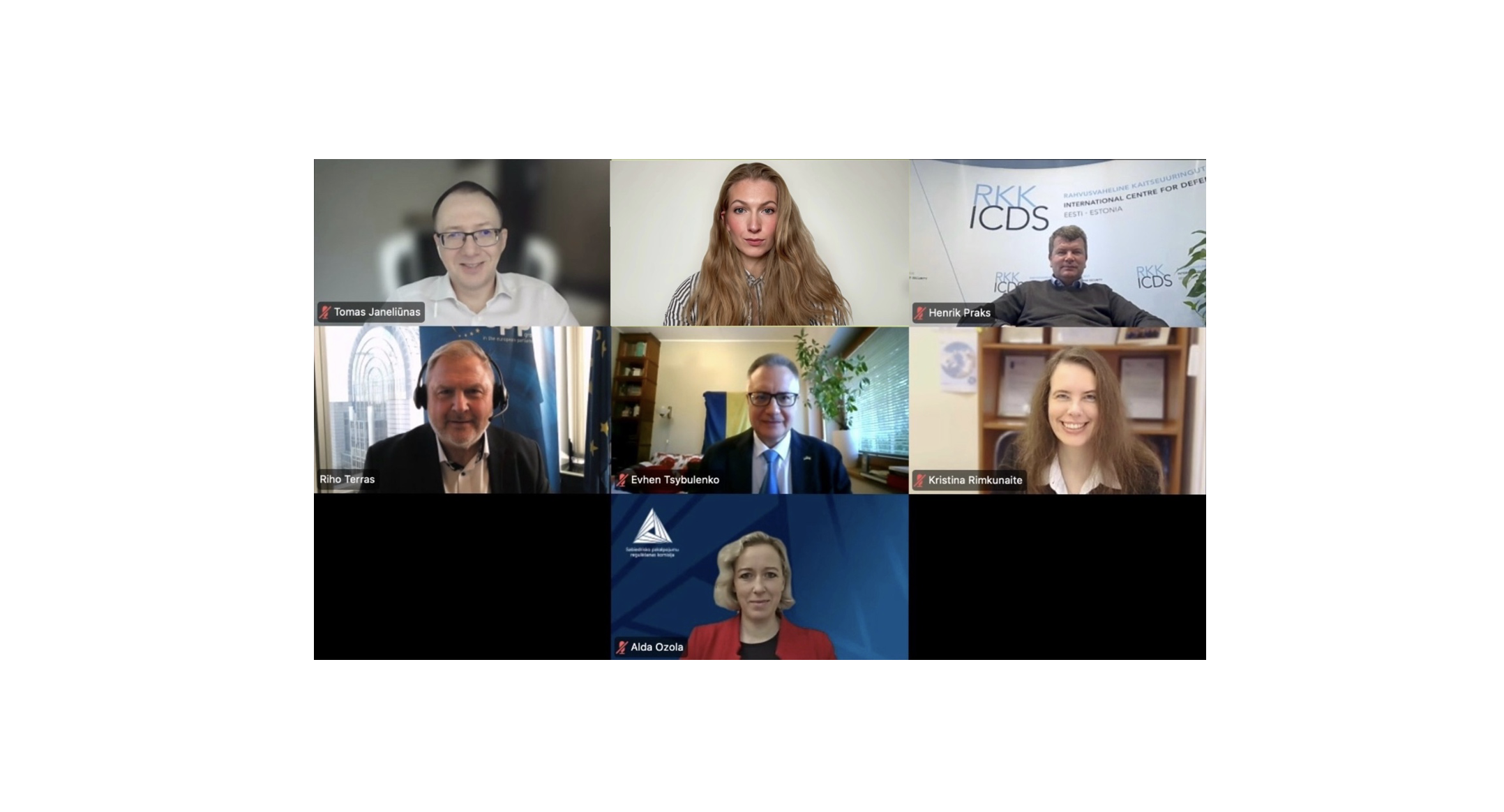Powering Resilience 2025:
How the Baltic States Are Securing Energy, Cyberspace & Society Against Russian Pressure
 On Wednesday, 12 November 2025, SME Connect held a webcast titled “POWERING RESILIENCE 2025: How the Baltic States Are Securing Energy, Cyberspace & Society Against Russian Pressure”, bringing people virtually together from across Europe and beyond to discuss a story of transformation, determination and strategic resilience. The wabcast was hosted by Riho Terras, Member of the European Parliament, Vice-Chair Committee on Security and Defence; Former Estonian Chief of Defence.
On Wednesday, 12 November 2025, SME Connect held a webcast titled “POWERING RESILIENCE 2025: How the Baltic States Are Securing Energy, Cyberspace & Society Against Russian Pressure”, bringing people virtually together from across Europe and beyond to discuss a story of transformation, determination and strategic resilience. The wabcast was hosted by Riho Terras, Member of the European Parliament, Vice-Chair Committee on Security and Defence; Former Estonian Chief of Defence.
In 2025, the three Baltic states—Estonia, Latvia and Lithuania—are not simply reacting to change, but they are, in fact, writing a new chapter in Europe’s security story. The historic synchronisation of their electricity grids with Continental Europe has done much more than end decades of energy dependence on Russia—it has signalled a decisive shift toward strategic autonomy. Yet as the region fortifies its defences, pressure is mounting—from cyberattacks on energy systems and critical undersea infrastructure to disinformation aimed at disrupting institutions and sowing fear and panic. The context of Russia’s ongoing aggression and hybrid tactics—from cyberattacks to disinformation—was outlined and it was underscored that the Baltic experience serves as both a warning and an example for the rest of Europe.
RIHO TERRAS MEP opened with reflections on Europe’s evolving understanding of resilience. Drawing on his own experience as Estonia’s Chief of Defence, he noted that true resilience is not only a military concept but a comprehensive societal one, encompassing energy independence, cyber defence, and civic trust. He traced the roots of this mindset back to 2008, when Russia’s war in Georgia first revealed the vulnerabilities of unprepared societies. Terras warned that disinformation and psychological operations remain central tools of Russian strategy, aiming to fragment European unity and erode citizens’ confidence in democratic institutions.
The first expert presentation was delivered by HENRIK PRAKS, Research Fellow at the International Centre for Defence and Security (ICDS) in Tallinn. He analysed energy resilience from a security perspective, focusing on the protection of undersea infrastructure. Using the December 2024 Eagle incident—when a Russian-linked oil tanker severed the Estlink 2 power cable between Finland and Estonia—as a case study, Praks highlighted significant legal and operational gaps in protecting critical infrastructure located in international waters. He stressed that strengthening surveillance, rapid-repair capabilities, and maritime legislation must be priorities if Europe is to deter future hybrid interference.
ALDA OZOLA, Chair of the Public Utilities Commission of Latvia, addressed the regulatory dimension of resilience. She explained that the synchronisation of the Baltic grids with the European network, completed in February 2025, marked a strategic milestone akin to “Baltic Energy Independence Day”. However, she cautioned that new interconnections and storage systems bring new costs and regulatory challenges. Energy regulators, she noted, must balance investments in cybersecurity and infrastructure with affordability for consumers while countering disinformation about rising tariffs. Ozola emphasised that resilience depends not only on physical assets but on institutions, cooperation, and public trust.
KRISTINA RIMKUNAITE, Subject Matter Expert at in Vilnius, explored the link between energy transition and security. She warned that Europe’s rapid electrification and growing reliance on renewables require grids and storage systems to evolve faster than ever before. While decentralised generation enhances resilience, dependence on imported rare earths and components from China and Russia introduces new vulnerabilities. Rimkunaite also underlined the importance of cybersecurity, noting that many energy operators still rely on outdated legacy systems. Regular stress tests and civil-military coordination exercises, she said, are key to detecting weaknesses before adversaries exploit them.
PROF. TOMAS JANELIŪNAS, representing Vilnius University, described Lithuania’s path from “energy island to European hub”. He traced the country’s long-term strategy of reducing dependence on Russian energy through interconnectors with Sweden and Poland, the Klaipėda LNG terminal, and the 2025 grid synchronisation. He noted that more than 70 percent of Lithuania’s electricity already comes from renewable sources, yet warned that domestic grids must now be secured against new threats, including drone attacks, cybercrime, and technological dependencies in imported equipment.
The discussion highlighted a shared understanding that resilience is a continuous process, not a fixed state. Participants agreed that the Baltic model demonstrates how integration within the EU framework can strengthen autonomy and security simultaneously. However, it also revealed that Europe must still close regulatory gaps, coordinate cyber and energy policies more closely, and invest in public communication to counter hybrid influence operations.
In closing remarks, PROF. EVHEN TSYBULENKO, Estonian legal scholar of Ukrainian descent from TalTech, summarised that Russia’s war against Ukraine has shown energy, information, and security to be deeply intertwined. The Baltic States’ coordinated response—anchored in trust, innovation, and European solidarity—illustrates how democracies can turn vulnerability into strength.